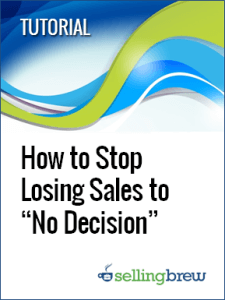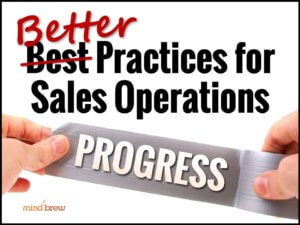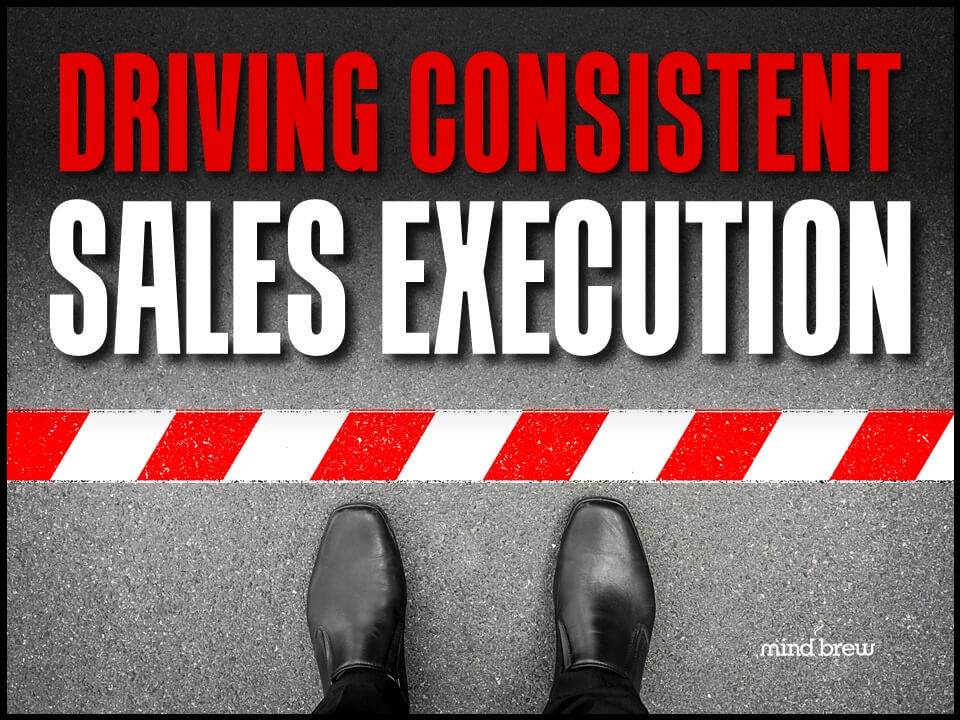Everyone who ever tried to tell a teacher that a dog ate their homework can tell you that making excuses is a bad idea.
Great American thinkers seem to find the practice of making excuses particularly distasteful. For example, Benjamin Franklin said, “He that is good for making excuses is seldom good for anything else.” And George Washington Carver said, “Ninety-nine percent of the failures come from people who have the habit of making excuses.” Even O.J. Simpson knew, “The day you take complete responsibility for yourself, the day you stop making any excuses, that’s the day you start to the top.”
Unfortunately, few sales team members seem to have learned these lessons. If they aren’t meeting their quotas, they are going to be making some excuses.
And most of the time, those excuses are going to pin at least some of the blame for sales failures on management and sales ops.
The interesting thing is that no matter what industry or what part of the country you might work in, the top sales excuses are the same. Here are the three most common—and how to respond:
1. “My quota is way too high.”
Salespeople love this excuses because it can make sales ops people doubt themselves. It’s entirely possible to set a quota too high. You know it, and the salespeople know it. And that’s why they try to use this excuse.
But if you did your homework before setting quotas, the math is on your side. And really, it’s impossible to argue with math.
To deal with this excuse, doublecheck that your sales quotas were data-driven and capture the reality of the market. One of the best ways to do this is to use one of the predictive analytics tools on the market. We cover those tools in depth in our Predictive Sales Analytics webinar.
Once you’re confident that your quotas were appropriate, show your data and reports to the salesperson (or salespeople) making the excuse. Politely but firmly explain that the sales quota will stay where it is, but offer any resources you have at your disposal, including training or market research, that might help the salesperson get the job done.
2. “No one’s ready to buy.”
It might take a bit of detective work to sleuth out the underlying cause for this excuse. In rare cases, it might be that external market forces are causing everyone in a given industry to be a little more cautious about purchases than usual.
However, it’s far more likely that the problem lies with the salesperson.
He or she might be engaging with people too low on the corporate ladder to make the final decision to buy your product. Or the salesperson might not truly understand the differential value of your product. Or, most likely of all, sales isn’t using the right strategies and tactics for dealing with a “no decision” situation where prospects don’t feel the need to purchase any solution—let alone yours.
If that’s the case, check out the Tutorial on How to Stop Losing Sales to “No Decision” and share some of the tactics with your sales team. The right training can go a long way toward eliminating this excuse.
3. “I don’t have enough time to sell.”
This one’s always a head-scratcher. A great salesperson would never let some administrative “burden” get in the way of actually selling. He or she would drop everything to close a deal. Sure, salespeople love to complain about paperwork, but it should never be an excuse for doing poorly.
It’s tempting in this situation too look for ways to streamline processes and get rid of some of the administrative burden that salespeople feel.
You can do the sorts of sales enablement activities if you like, but they probably won’t solve the problem.
The truth is that salespeople who complain about paperwork and not having enough time probably don’t know why their sales efforts aren’t working. They’re frustrated. And so they latch on to the thing that frustrates them most about their job as the cause of their frustrations—and that’s paperwork.
The way to eliminate this excuse is to focus on sales effectiveness. That means going back to your data and looking for insights that you can give your sales team to help them be more successful. It’s a complicated process, but we explain the basics in the webinar Getting Serious About Sales Effectiveness.
In the end, all of these excuses are just that—excuses. The more you can provide your sales team with the data, training, tools, and motivation they need to do their jobs well, the less often you’ll hear any of these excuses.














